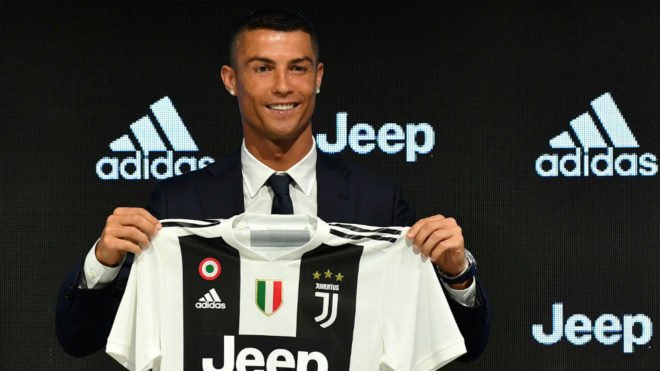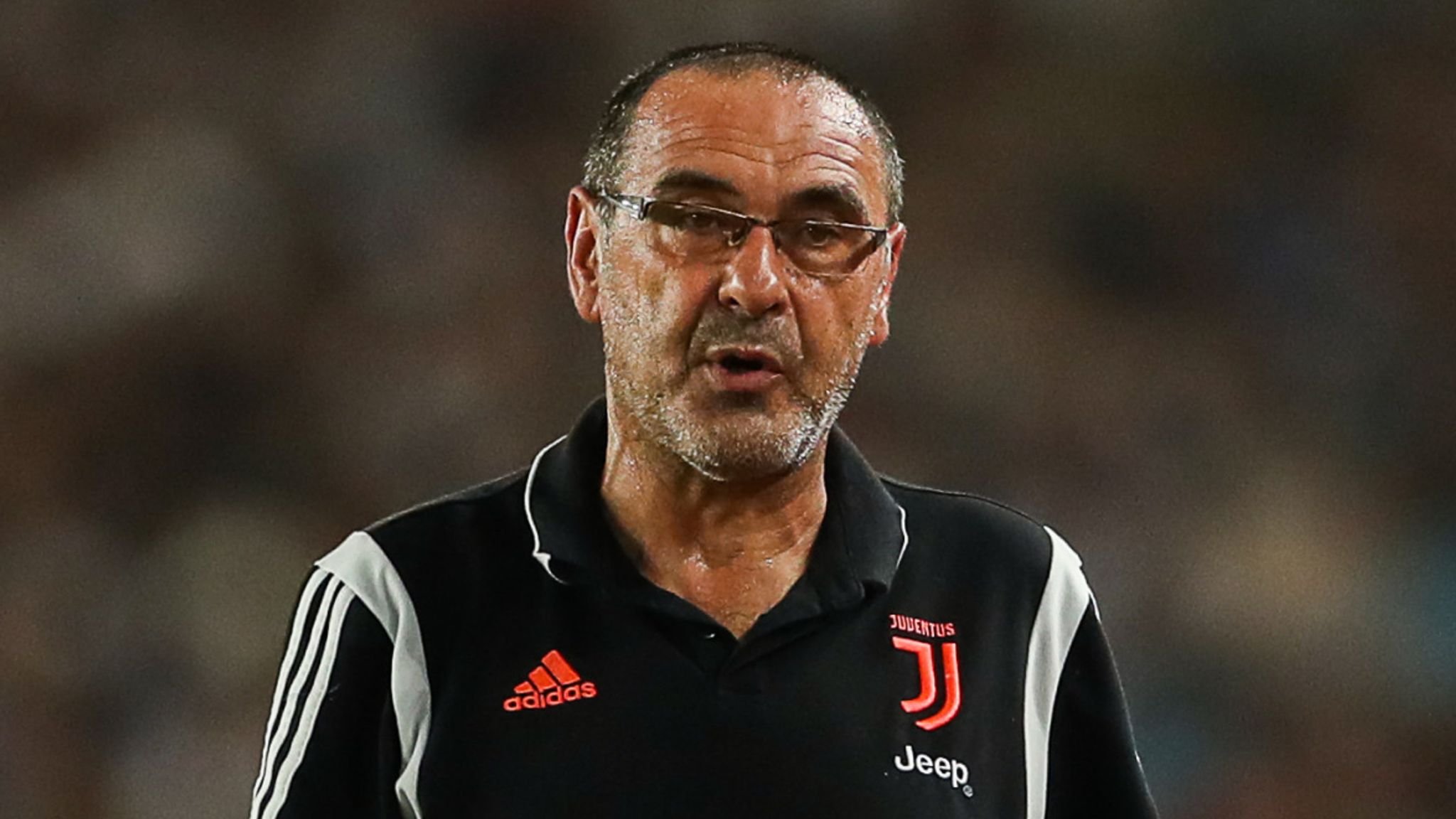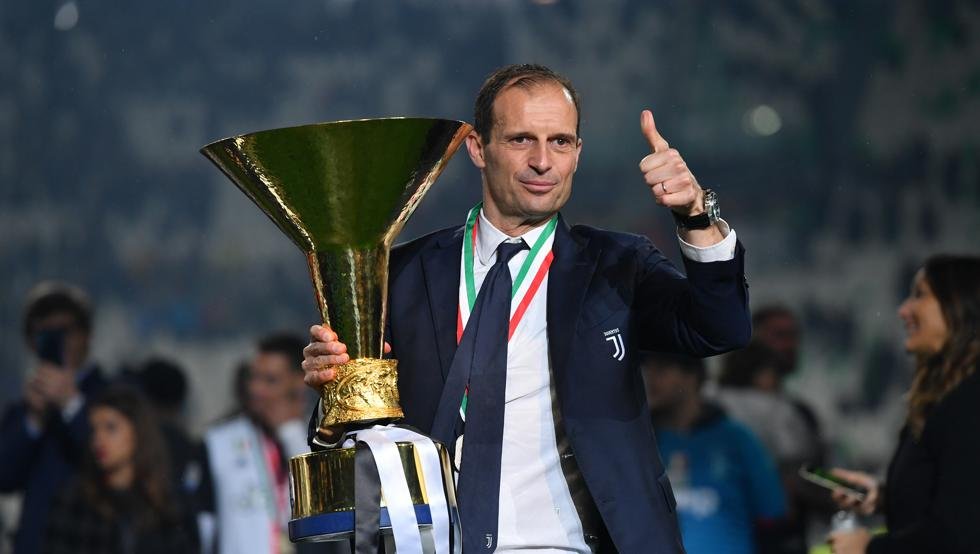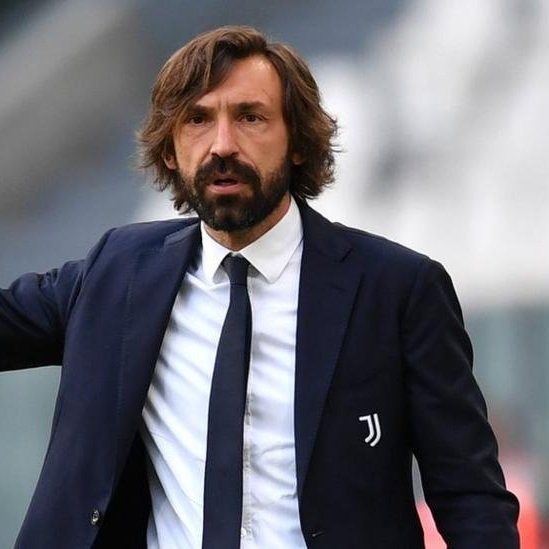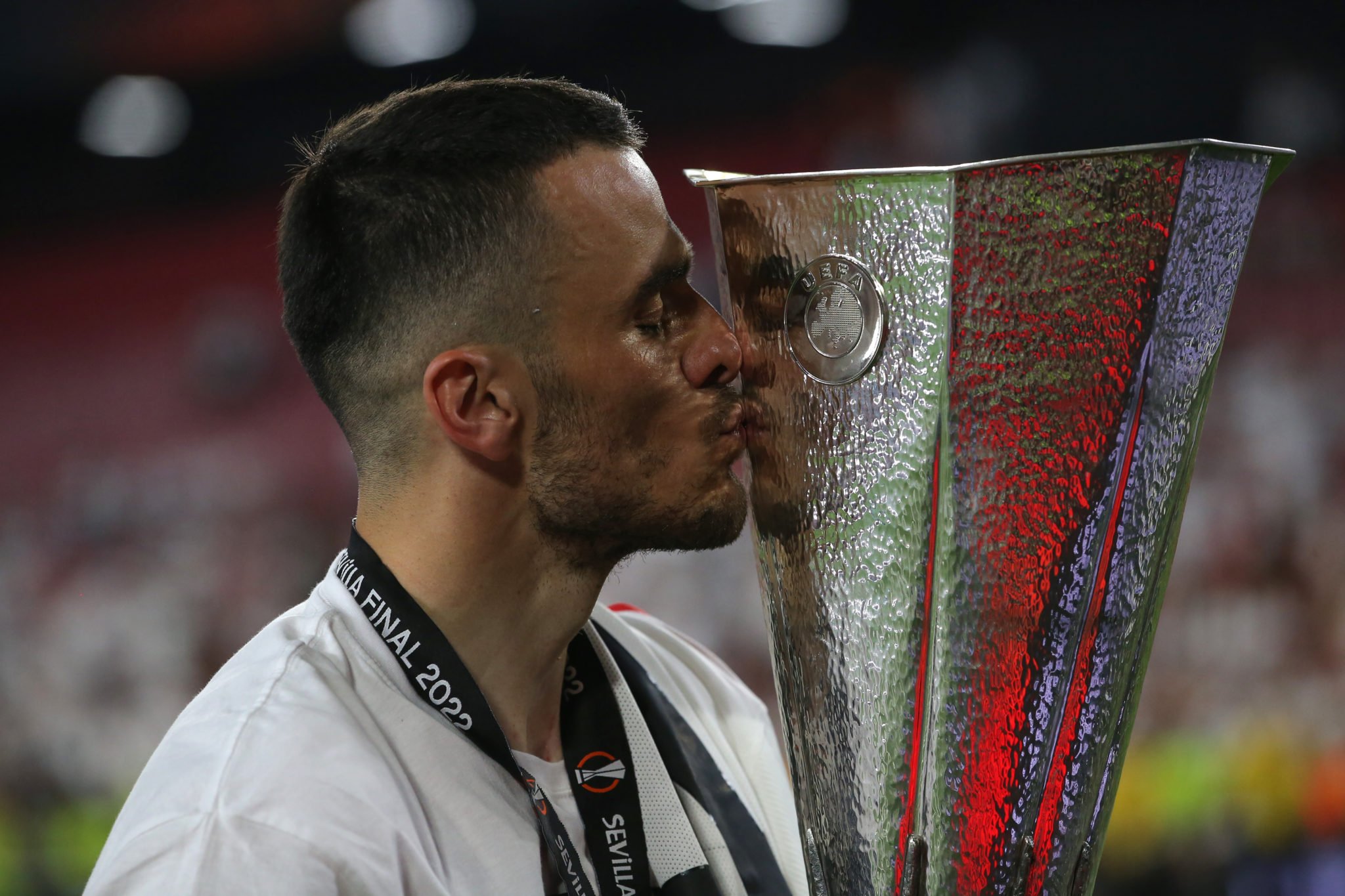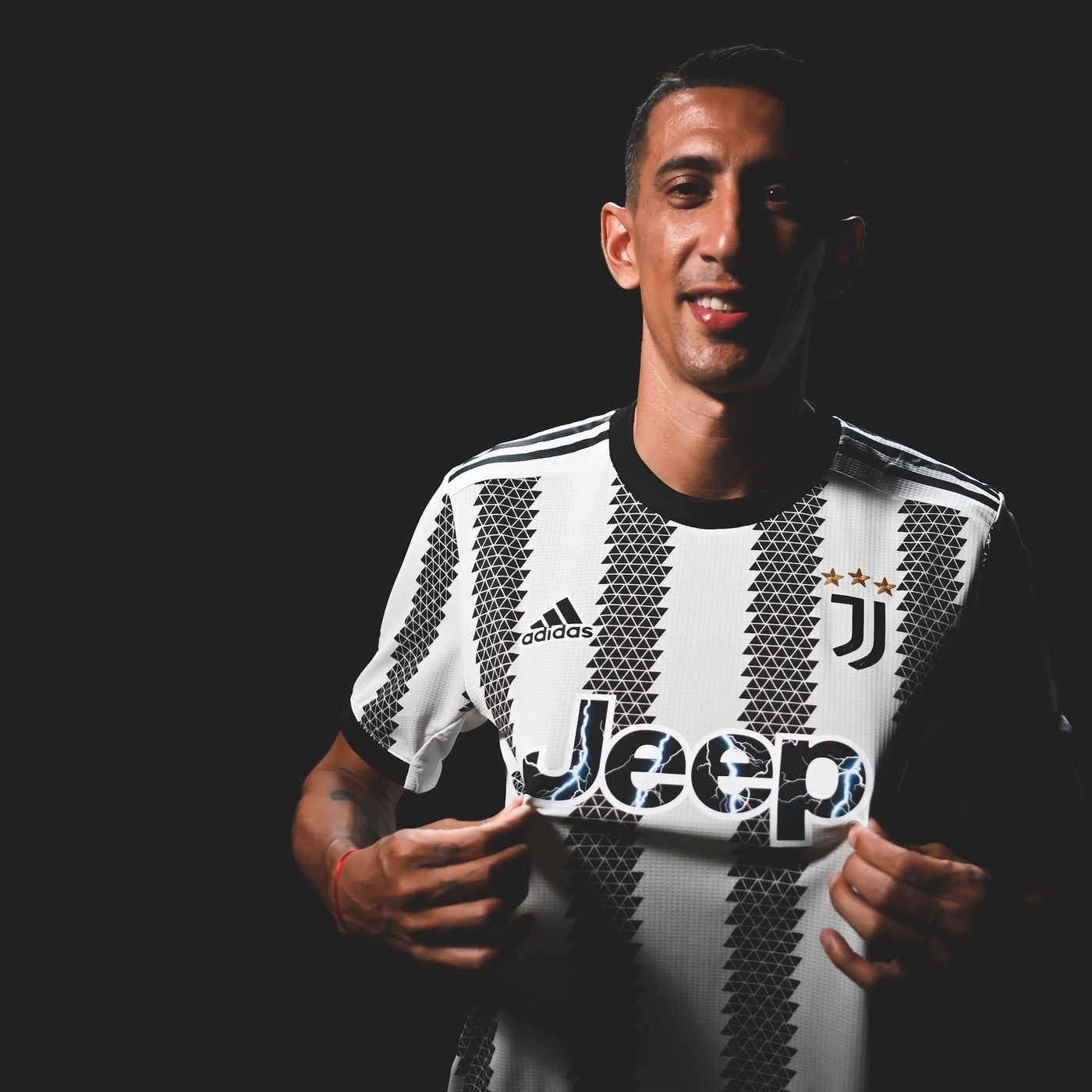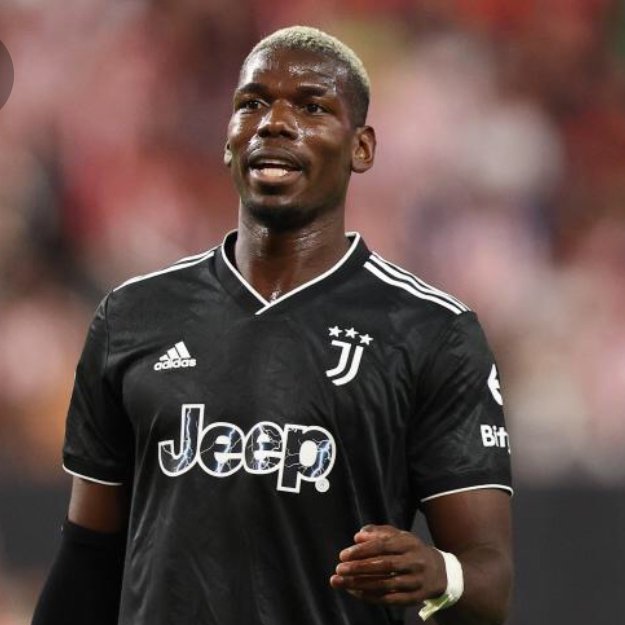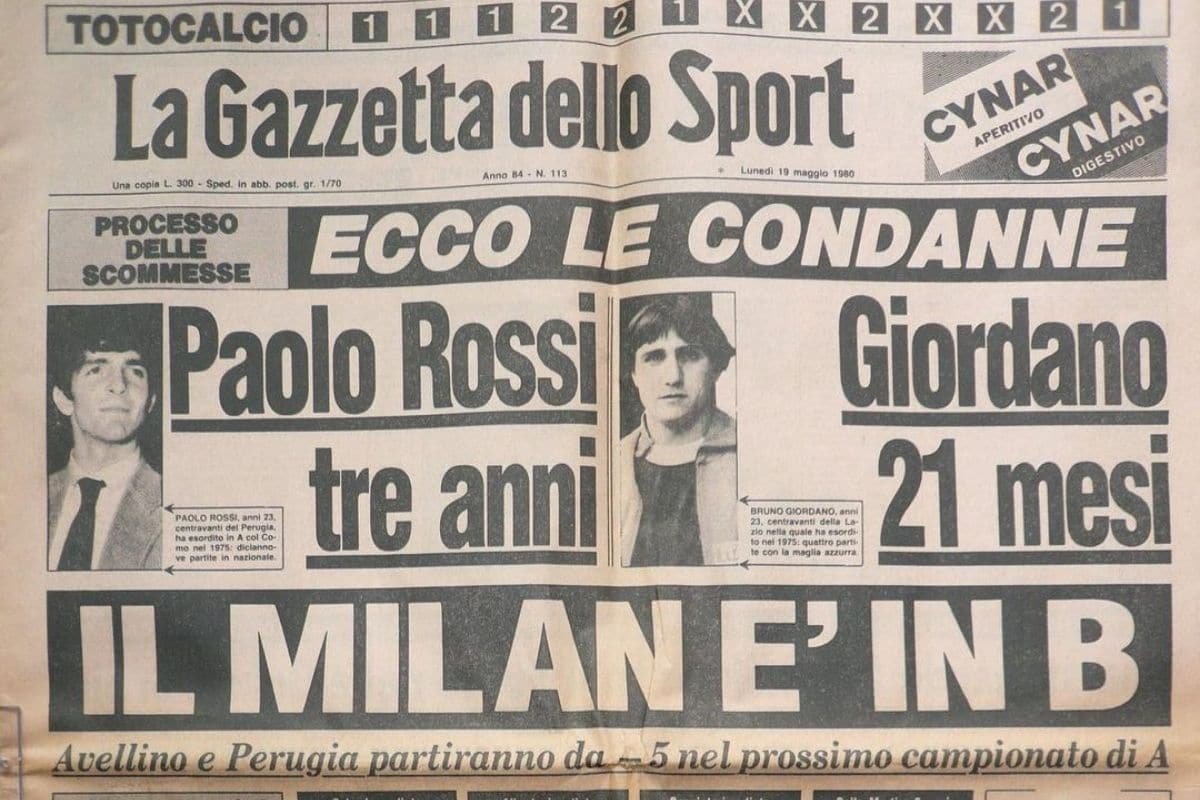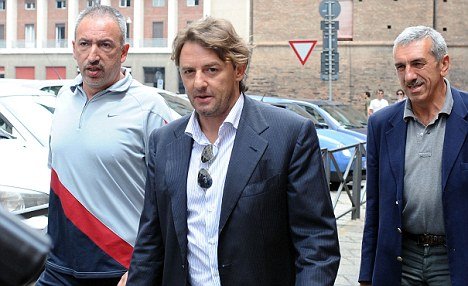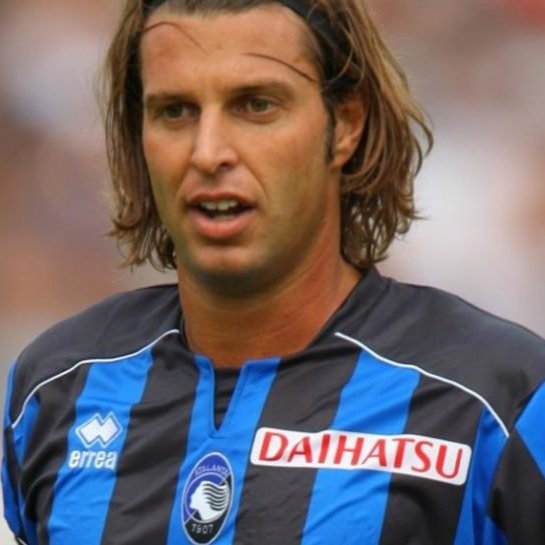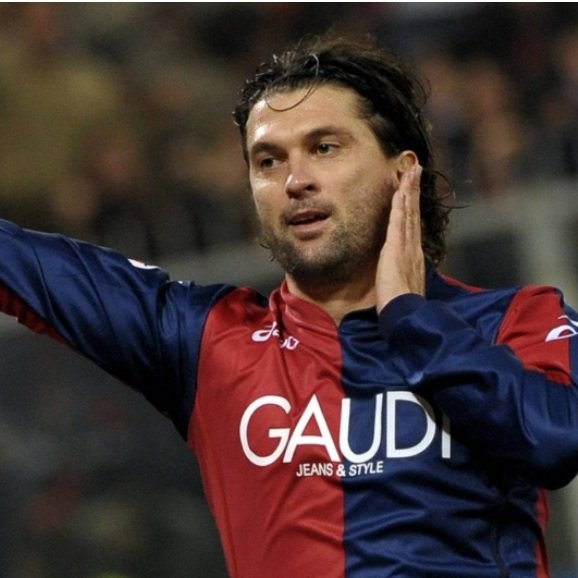The Calciopoli Scandal: A Report on Match-Fixing in Italian Football and The ReJuvenation of ‘The Old Lady’
Photo Credit: Daily Mail
This week’s focus for Food & Footy is Bal Paese: the beautiful country of Italy. Upcoming posts on the Food section of the Blog will review some delightful Scran Spots across Italy and this post will discuss the ugly past of Italy’s involvement in the beautiful game.
When deliberating over what Italy-centric Footy post to write about, my mind cast back to watching Netflix’s documentary, Bad Sport, last Summer. It features an episode, ‘Footballgate’, documenting the infamous Calciopoli Scandal.
16 years on from the ignominious Calciopoli Scandal, I will be recounting the events that shocked the world of football. I will then delve into The Old Lady’s rise back to the top, before discussing Italian football’s significant history of match-fixing and what the future holds.
The Calciopoli Scandal: A Brief Rundown
Photo Credit: BBC
Italy’s rich football history has undoubtedly been tainted by its prolonged involvement in match-fixing. The events of Calciopoli left football fans astounded, with the eventual punishments representing some of the strongest sanctions football has ever seen in response to criminal activity in the game.
So…What Happened?
The fast-developing scandal emerged into the public domain in May 2006, as a result of the Turin magistrates contacting the press to ensure it would be at the forefront of public discourse. Italian news publication, Gazzetta Dello Sport, revealed a number of transcripts, revealing widepread corruption from the then Juventus Sporting Director, Luciano Moggi, and former Juventus CEO, Antonio Giraudo.
Photo Credit: FourFourTwo
An extensive catalogue of evidence, albeit indeterminate, surfaced, divulging Moggi’s exchanges with Serie A referees. This was as a result of prosecutors initially investigating into Moggi’s football management agency, GEA World, which he co-owned with his son, Alessandro.
A task force, through extensive wiretapping, initially intended to uncover the validity behind doping accusations in the 1990s. Much to the football world’s surprise, the wiretaps fascinatingly revealed the Italian attempted to manipulate results in Juve’s favour. A plethora of techniques were deployed by Moggi to ensure Juve could mount a title charge, with certain evidence creating imagery akin to scenes from The Godfather.
Italy has spent generations striving to shirk off its hyperbolically dramatised mafia image, but Moggi went some way to blemish the country’s reputation in the eyes of the public. The following phone-tapping quote by Moggi is emblematic of his cold-hearted, pugnacious nature, and truly exemplifies why comparisons have been made of Moggi being a Don Corleone-like figure.
“We need to deal with him, we need to beat him up. We need to make him haemorrhage, that’s what we need to do. We’ll invent something, we’ll mess with some of his players.”
Moggi, in talks with the league’s administrators, appeared to involve himself in the referee designation process, somewhat cherry-picking referees deemed more amenable to his cause. The President of the Italian Referees’ Association and member of the prestigious UEFA’s Referees Commission, Pierluigi ‘Gigi’ Pairetto, was the centre of controversy. Transcripts reveal unaccustomed quantities of phone-calls between Gigi and Moggi. Flares were tempering and after The Old Lady drew 2-2 in its Champions League first leg encounter with Djugårdens, Moggi was infuriated with referee Herbert Fandel’s decision to disallow Fabrizio Miccoli’s goal.
‘Gigi’ (Photo Credit: Il Calcio è Uguale Per Tutti)
Fabrizio Miccoli (Photo Credit: Football Tribe)
The quite shocking exchange between Gigi and Moggi, is detailed in the transcript below:
Pairetto: Hello!
Moggi: Gigi? Where are you?
Pairetto: We left.
Moggi: Oh, what kind of f*** referee did you send us?
Pairetto: Oh, Fandel is one of the best.
Moggi: I know, but Miccoli’s goal was valid.
Pairetto: No, it wasn’t.
Moggi: It was valid; it was valid!
Pairetto: No, it was right in front [of the ref].
Moggi: What are you talking about? It wasn’t in front. All throughout the match, he messed things up for us!
Pairetto: But he’s one of the top…
Moggi: He can go and f*** himself. And for Stockholm [the return leg], I’m counting on you!
Pairetto: For f***’s sake. Mamma mia. This surely has to be a proper match.
Moggi: No, we’ll win. You know…
Further examples of Moggi’s interference with the referee selection process include instructing Pairetto to appoint Tiziano Pieri as the match official, on 23rd August 2004, in Juve’s crunch encounter against title rivals, AC Milan; and a week later, ensuring Urs Meier would officiate the opening Champions League Group match against Ajax.
The accused at the top of the tree were also seen to utilise untraceable phonecards, clandestine payoffs and mouthwatering incentives to officials. Allegations also materialised in respect to the number and suspicious timings of rival teams’ yellow cards, as suspensions suspiciously occurred on numerous occasions to strategically benefit Juve.
“Phone taps of a bewildering nature and variety revealed a dark world of deception, fraud and moral and political pressure”
The most disturbing instance of apparent coercion was Moggi and former Juventus CEO, Antonio Giraudo’s threats towards referee, Gianluca Paparesta and his two assistants in November 2004. In the aftermath of Juve’s 2-1 defeat to Reggina, they allegedly brazened the officals, demanding answers as to why they did not favour Juve.
Antonio Giraudo (Photo Credit: Sports Net)
Gianluca Paparesta (Photo Credit: Il Sussi Diario)
Two referees to emerge unscathed from the wrath of Italian authorities were Roberto Rosetti and Pierluigi Collina, who Moggi described as “too objective” and should be “punished”. I was glad to see Collina maintained his discipline and commanding aura, as since my adolescence, he has been my all-time favourite referee.
Moggi’s authoritarian-like influence even expanded to television coverage, as presenters were persuaded to display Juve in overly-grandiose ways. The most compelling example of this involved the actions of Aldo Biscardi. As a highly respected and popular Italian football broadcaster, his opinions would shape, to a certain extent, the media’s perception of Juventus. In return for exclusive access to Juventus’ inner workings, he would publicly defend Juve, arguing it was not receiving preferential treatment. His close ties with Moggi created biased broadcasts which deceived the public and its conceptions of Juve.
Punishing the Accused
Photo Credit: Footie Central
On July 14 2006, the Italian Football Federation (FIGC) ruled that Juve, AC Milan, Lazio, Fiorentina and Reggina were guilty and would be punished for their roles in the scandal. The resulting punishments were significant.
AC Milan were forbidden from playing in the subsequent season’s Champions League campaign, began the 2006/07 season with an 8-point deduction and had to play one game behind closed doors. All sides were stripped of their European qualifications and after appeals, Fiorentina received a 15-point deduction, Lazio a 3-point deduction and both clubs were forced to play two games behind closed doors. Reggina remained in the division, but received a 15-point penalty, a €100,000 club-fine and the Club President, Pasquale Foti was fined €30,000 and barred from all football-related activities for two-and-a-half years.
Juve’s sanctions were much more pervasive. It was the only club embroiled in the scandal to be relegated as a comeuppance. The club received a 9-point deduction for the 2006/07 season, a €75,000 fine and were stripped of the 2004/05 and 2005/06 titles. The latter was awarded to Inter Milan, who finished 3rd place in that season, creating further controversy. Juve has lodged 30 unsuccessful appeals against the Nerazzurri‘s award of the Scudetto. The intense bitterness of Juve derives largely from Inter capitalising so strongly on Juve and other rivals’ downfalls. It won the 2006/07 title in a landslide, by 23 points, due to the points deductions at play and then went on to win the next three Serie A titles in a row. As a result of insufficient organisation for the FIGC to investigate Inter for its wrongdoing in the match-fixing endemic at the time, no punishments were given to La Baneamata because FIGC did not deliver punishments before the deadline. These events were notably contentious, as former FIGC President, Franco Carraro recently stated “it was an error to assign the 2006 Scudetto to Inter”, whilst Carlo Porceddu, a judge presiding over the scandal, reaffirmed this, saying it was a “very serious error”. Porceddu went on to back up his statement, by mentioning that the “Extraordinary Commissioner of the Federation at that time, Guido Rossi, nominated a group of his friends, one of whom had been on the Inter Board of Directors, and that title was revoked from Juventus and assigned to Inter.” Somewhat comically is the juxtaposition between the two clubs’ characterisation of the 2006 title. Inter refer it as the Moral Scudetto whilst Juventus fans denounce it as the Cardboard Scudetto. It has since emerged that Inter were not good as gold, and arguably committed wrongdoings, albeit to a lesser extent to Juve. Many feel the club have been ‘let off the hook’ and the two clubs’ rivalry on and off the pitch remains powerful.
The entire Juve board resigned on 11 May 2006, and the mastermind behind the operation, Moggi, did the same 3 days later, after Juve won the 2006 Scudetto. Giraudo received a 5-year ban from football whilst Moggi received a lifelong ban.
The Eventual Fate of the ‘Big Players’
Much to the dismay of football fans and lawyers alike, significant charges against Moggi and Giraudo were dropped in March 2015. Italy’s highest court ruled that the statute of limitations had expired, thus Moggi has evaded a 28-month jail-term and Giraudo, a 20-month term. However, former referee, Massimo De Santis, was unable to shirk his sentence, after his appeal against his one-year suspended sentence was rejected.
A moment that stood out for me in Netflix’s Bad Sport was not only Moggi’s blanket denial of wrongdoing but also the revelation that he has since contemplated suicide in the wake of the events of Calciopoli. He remarked the following:
“I was ashamed even to walk down the street and at that moment I contemplated many things, even suicide...
It’s as if I was at the top of a tree and everyone below was taking aim, ready to take shots at me. The first 10 days were horrific.”
Moggi’s Interview in Bad Sport (Photo Credit: Netflix)
The ReJuvenation
Photo Credit: Juventus
The Big Fish Entered the Small Pond…
After 109 years in top-flight Italian football, Juve was forced to reassess and compete in the more humble setting of Serie B. Its manager, Fabio Capello, exited for Real Madrid, bringing with him Emerson and Fabio Cannavaro, the latter internationally revered after lifting the World Cup with Italy and receiving the Ballon d’Or. A pantheon of football icons then departed the club for cut-price fees largely due to the context of Juve’s demise to a lesser division. Zlatan Ibrahimović and Patrick Vieira both joined Inter Milan, Liliam Thuram and Gianluca Zambrotta left for Barcelona whilst Adrian Mutu joined fellow-wrongdoers, Fiorentina.
Didier Deschamps took the reigns, and in surprising fashion, The Old Lady was able to maintain the trusty services of a number of established, world-class talents. Former Ballon d’Or winner, Pavel Nedvêd as well as Alessandro Del Piero, Gianluigi Buffon and David Trezeguet remained loyal to Juve when the under-fire club needed it the most. Up-and-coming talents at the time, Giorgio Chiellini and Claudio Marchisio also added extra strength to the team’s spine. The sacrifice these players, with astounding accolades to their names, took to swallow their pride and play in a division below their talent grade was beyond interesting for football fans.
The following image, created by the BBC, demonstrates the strength of the lineup Juve could still put forward in Serie B matchups:
Juve’s 2006/07 Strongest Lineup (Photo Credit: BBC)
Juve’s journey in Serie B was an curious one. The club did not dominate in the way in which most would have anticipated, partly due to the defensive tactical style of opponents. Although it came out victorious in the division, it drew ten matches and lost four. The club had significant work to do in order to re-establish itself to the heights of Serie A. Its veteran players were ageing and the financial situation at the club was worsening…
Back to Where it Belonged…
Claudio Ranieri (Photo Credit: Bleacher Report)
After some disagreements between Deschamps and the Juve hierarchy, they parted ways, and Claudio Ranieri entered the fray. It was a difficult philosophical moment for the club to ascertain whether the best approach was an aggressive approach to bring about instance success, or do a slower, more progressive rebuild. Ranieri began life in Turin with a third place finish, but despite subsequent optimism in the form of a second-place finish, the club returned to its slump, finishing seventh place two years in a row. Juve’s deterioration into mediocrity reached a head in its 2010 Europa League campaign, when underdogs Fulham famously overcame the Italians to reach the final of the competition.
The continued disappointment amongst the Gobbi culminated in the appointment of former player, Antonio Conte, and this is when they truly rose from the ashes. The inherent entitlement of the club to belong to the top has remained ever-present and assigning Conte with this up-hill-battle left many sceptical, partly due to his inexperience managing a ‘big club’. He had previously managed (to good effect) Arrezo, Atalanta, Siena and Bari. Conte was an instant domestic success. The recruitment was smart, blending prodigious young talents, including Paul Pogba, with seasoned professionals such as Andrea Pirlo, Arturo Vidal, Kwadwo Asamoah and Carlos Tevez amongst others. The new state-of-the-art Allianz Stadium built with it overwhelming success, as Conte’s disciplinarian attitude worked incredibly well with his playing staff, and his 3-5-2 formation was tactically advanced. Juve went on to win the Scudetto unbeaten in his first season, before winning it two further times, and in his last season, the club broke the record for the most points amassed in a single Serie A season, with 102. He certainly left his mark and re-established Juve as a domestic powerhouse once more, although the Juve faithful still desired more on the European stage.
Antonio Conte Broke Records at Juve (Photo Credit: Eurosport)
Conte then resigned from Juve, because he felt it “may be more difficult to keep winning with Juventus” in the future and had “matured with time [with his] feelings [leading him] to make this choice”. In came Massimiliano Allegri from rivals, AC Milan. He was also a roaring success, building on the club’s winning mentality, earning the Scudetto five successive times, whilst reaching the grandest stage of them all twice, the Champions League Final, only to lose on both occasions. Stylistically, his approach was not too dissimilar to Conte’s, but tactically, the formations offered greater flexibility as he would fluidly switch between a 3-5-2 formation and various iterations of four-man back lines.
The Ronaldo Era
The video below exhibits arguably the best Champions League goal of all time. Football icon, Cristiano Ronaldo, executed this audacious effort to break Juve’s aspirations of winning the European silverware, and after witnessing this, Juve decided to break the bank and sign CR7.
The deal was worth a reported €112 million, a world-record fee for a player over the age of 30. The Old Lady secured a title in Ronaldo’s first seasons under both Allegri and Maurizio Sarri, but despite this, cracks were beginning to show. The Old Lady had dropped 18 points from winning positions, conceding an unacceptable 43 goals. Although Ronaldo’s star quality was still there to see, it has been felt amongst football critics for some time now that teams are forced to sacrifice coherent tactical plans for a naturally individualistic, ageing player whose style of play is not conducive to team success.
The appointment of club legend Andrea Pirlo only worsened things, as although he came with lofty ambitions and a clear tactical plan, he lacked managerial experience. There was a focus on intense pressing and the use of ‘third man runs’, with the hope Ronaldo and Álvaro Morata would convert the chances. However, the build-up play left a lot to be desired as Juve for years had built a strong cohort of diverse midfielders, but at this point, Pirlo was relying on a more limited group of Adrien Rabiot, Arthur, Weston McKennie and Aaron Ramsey. The aspirations of Pirlo did not match the on-field results, as the club’s run of nine consecutive titles ended to the hands of former manager Antonio Conte’s Inter Milan. After achieving an underwhelming fourth place, in 2020/21, the club parted ways with the Italian, once nicknamed ‘the Architect’ by teammates.
On the re-appointment of Allegri to the dug-out prior to the 2021/22 season, Ronaldo also exited to club, returning to Manchester United in a €15 million deal plus add ons.
The Ronaldo era brought with it a lack of success on the pitch, but from a commercial and financial standpoint, there is evidence of the signing being a success story. Although the total costs of Ronaldo amounted to €272 million across his three-year tenure at the club, his impact on the club’s revenue was astounding. Stadium revenues grew by 25% in his first season, but COVID-19 halted this economic progress. Commercial success grew, registering the highest year-on-year growth for the club at 30%, rising from €142.6 million in 2017/18 to €185.4 million in 2018/19. CR7’s impact on the club was far-reaching, as seen by the deals struck with kit sponsors. Jeep agreed a shirt sponsor deal amounting to €51 million annually, up from the previous €17 million deal, whilst the club’s deal with Adidas increased from €23 million to €51 million. Regarding social media, the club had approximately 50.4 million followers on its main platforms prior to the Portuguese hitman’s arrival, and on the day of his departure to Manchester United, this figure had exponentially risen to around 109 million. The financial rewards were not reaped to the fullest extent by Juve, largely due to the global health emergency the club could not foresee. Juve believed signing CR7 would provide the club with that extra boost to reach the summit of European football, by winning the Champions League, but could not manage to do this. The deal on the whole really disappointed…
Juve’s Raid Scare
In late-November 2021, Juve received a considerable scare, bringing back images of the Juve’s darker days during the Calciopoli Scandal. Italian authorities, the Guardia di Finanza, raided the club’s offices amid an investigation into financial wrongdoing, and were inquiring into the actions of President, Andrea Agnelli, Vice-President, Pavel Nedvêd and former Chief Football Officer, Fabio Paratici. The club was under fire for reportedly inflating the value of its players when conducting transfers between 2019 and 2021. Reports suggested there was false accounting across 42 transfers, including Joao Cancelo, Miralem Pjanić, Arthur and Danilo. Profits grossing €50million attained in this two-year spell were being investigated.
However, fortunately for The Old Lady, the investigation came to an end in February, as confirmed by the club in a statement.
What Does the Future Hold?
The footballing success of Juve is an uncertain one, as it will be looking to improve upon Allegri’s fourth place position on his return to the club. However, the club has recruited very well this summer, signing the following players:
The signings of experienced talents, Paul Pogba and Angel Di María to bolster the club’s attacking options has been shrewd. Pogba who left the club in 2018 for a world-record fee at the time has returned without any financial outlay on a transfer fee, but unfortunately, he has already fallen foul to his injury-prone ways, injuring his knee and will be out for some time. Exciting young talent, Federico Chiesa, however, who picked up a serious ACL injury last season returned to training and should be available soon. The club’s acquisition of Filip Kostić is an interesting one, as the atttack-minded Serbian impressed greatly during Frankfurt’s road to Europa League success last season. The wing-back amassed 7 goals and 15 assists last term. I am most excited by the prospect of seeing last season’s Serie A Defender of the Year, Gleison Bremer. His physicality at the back and impressive positional awareness will provide Juventus with some added steel.
Juve has started the season with a 3-0 victory over Sassuolo and a 0-0 stalemate with Sampdoria. It will be fascinating to see whether Allegri can regain his former winning formula with this new crop of players, in a league which is becoming increasingly competitive.
Calciopoli, A Pattern or An Outlier?
Photo Credit: Forbes
The prominence of the Calciopoli Scandal in the minds of the public is undoubtable. In Italy, it has stained the reputation and integrity of the league, and Juve, amongst others, will never be allowed to forget their involvement in such a reprehensible saga. However, in the context of Italian match-fixing scandals, it must be noted that this is not a standalone incident. I have summarised below some of the most eye-catching scandals to have struck the Italian game, which demonstrates how Calciopoli continued an emerging pattern of corruption in Italian football.
Angelo Moratti’s Dodgy Dealings in the 60s
Angelo Moratti (Photo Credit: Sport Magazine)
The inception of documented match-fixing in Italian football derives from the 60s during Angelo Moratti’s Presidency at Inter MIlan. The Nerazzurri won back-to-back European Cups in 1964 and 1965, boasting such legends of the game as Luis Suarez (The Uruguayan striker’s Spanish namesake) and Armando Picchi. However, the well-distinguished journalist, Brian Glanville, later exposed evidence that Inter’s success was built on corruption and match-fixing. He detailed how Moratti along with infamous matchfixer, Deszo Szolti and Inter’s then Sporting Director, Italo Allodi coerced referee Gyorgy Vadas into manipulating the result of its European semi-final match with Malaga, and also pressurised referees to impact the Finals too. Inter legend Feruccio Mazzola uncovered the club’s use of illegal, performance-enhancing drugs at this successful time. Inter went on to sue Mazzola, in 2010, for defaming the club, but he was successful in the case, adding further legitimacy to the notion that Inter were engaging in wrongdoing during the 60s.
The 1980 Totonero Scandal
Front Page News (Photo Credit: Breaking The Lines)
Arguably one of the largest scandals in football history, Totonero went some way to establish an unfavourable reputation towards Italian football’s involvement in organised crime.
Alvaro Trinca, a respected Roman restauranteur, and Massimo Cruciani, his supplier of fresh produce were the main players. Totocalcio, a state-owned jackpot, was the sole medium for making bets on football matches at the time, but the chances of success were minimal as one would need to correctly predict every scoreline for a matchweek. However, ‘Totonero’ was a method in which one would bet on individual matches, an illegal practise at the time. Several players from clubs including Lazio, AC Milan, Perusia, Bologna and Napoli frequented Trinca’s establishment, and were persuaded to fix the matches in return for lucrative payments. Due to a lack of success in obtaining profits from the illegal venture, the business duo grew frustrated. They reportedly lost around $100,000. In treacherous fashion, the duo then filed a report with Rome’s public prosecutor, providing them with 27 players and 13 clubs across Serie A and Serie B who were involved with the scheme. Along with the arrests of Trinca and Cruciani, it eventually led to the mass-arrests of 13 players, amounting to 50 years worth of bans as well as individual punishments for both AC Milan and Bologna’s Presidents, the former being disbarred. 25 points were deducted from clubs across the division, with AC Milan and Lazio being relegated to Serie B. However, the arrested circumvented criminal charges as a result of there being no Italian law in place for match-fixing at the time.
Paolo Rossi Lifting The World Cup (Photo Credit: The Statesman)
The most fascinating narrative surrounding this story was the two-year ban in place for Italy legend Paolo Rossi, who then returned after his ban to become the instrumental figure in Italy’s 1982 World Cup triumph. He finished top goalscorer of the tournament and received the Ballon d’Or in the same year. Quite the story!
The 2011-12 Calcioscommesse Scandal
The etymology of the scandal, known as Calcioscommesse or Scommessopoli, forms its roots in the idea of there being a ‘Betting-Gate’ during that time-period in Italian football. The situation unravelled on 1 June 2011, when a large number of figures in the game were arrested or scrutinised for alleged match-fixing activities. Arrests took place throughout the Italian football pyramid, leading to 19 players receiving bans from football, ranging from one to five years.
Paoloni’s Arrest (Photo Credit: China.org)
The scandal first came to light following suspicions surrrounding Cremonese’s goalkeeper, Marco Paoloni. He was regarded as a key protagonist of the match-fixing organisation, actively instigating criminal situations, by collecting illegal bets and organising match fixes. One headline involved Paoloni purposively doping his own Cremonese teammates by using his wife’s prescription for a tranquiliser, Loremetazepam, which he placed into their drinks, to facilitate match-fixing. Italian prosecutor, Roberto Di Martino is quoted as describing these events as “like a fairy tale or a novel. It is absolute craziness, something unbelievable but it’s all true”. Five Cremonese players and one physio spoke of their ill health and were hospitalised, whilst one player crashed his car. The eventual outcome was Paoloni’s efforts failed to secure his desired result, as Cremonese won 2-0, but it kick-started investigations into the Calcioscommesse scandal. Paoloni went on to receive a 5-year ban which was then extended by a further 4 years in 2012. He has since voiced his regret over the incident:
"I made a mistake and I take full responsibility.
For seven months I haven't been able to live. I had trouble sleeping. As soon as I fell asleep I woke up again and thought about all the idiotic things that I was doing,.. I'm in jail but I feel like I've been freed."
A Case in Focus: Andrea Masiello
Arguably the most fascinating case centred on Andrea Masiello. During The Derby of Puglia between Bari and Lecce in May 2011, he scored an own goal in the 80th minute, by deflecting Lecce striker Jeda’s attempt beyond the reach of his own goalkeeper, Jean-Francois Gillet. The infamous goal can be seen below:
Masiello, during cross-examination, confessed to proactively selling information to gambling rings and receiving a bribery payment of €300,000 in return for scoring an own goal that would ensure Bari’s relegation. Investigations also uncovered further match-fixing in games against Palermo, Sampdoria, Chievo, Bologna and Udinese. In a statement, published in Corriere del Mezzogiorno, he said the following:
'I want to put on record when the score was 1-0, I took advantage of an opportunity to cement the final outcome of the defeat…
They offered me 80,000 euro ahead of the match against Palermo and I took the money… But then I tried to return it. I was scared and then I was certainly not alone.'
Masiello received a 22-month suspended prison sentence and Bari suffered a 7-point penalty at the start of its Serie B campaign as a result of match-fixing.
High-Profile Arrests
A vast array of footballing talents were entangled in this lamentable scandal. 3-time winner of the Capocannoniere Award for Serie A’s highest goalscorer, Giuseppe Signori, was arrested in connection with match-fixing. The police investigated the Italian after he successfully placed a €150,000 bet on a Serie A match between Inter and Lecce, predicting a 3-0 win for Inter. He received a ban from all football-related activity for five years, but on 23 February 2021, he was acquitted due to a ‘lack of evidence’. Four months later, FIGC’s President, Gabriele Gravina, pardoned the Italian, allowing him to return to football.
Atalanta was the focus of considerable denunciation, receiving a 6-point deduction for the 2011/12 season. Its captain and former Italian international, Cristiano Doni, received a three-and-a-half year ban from football-related activities, effectively forcing the attacking midfielder into early retirement.
Other high-profile cases included the arrests of former Lazio captain, Stefano Maura and former Genoa ex-captain, Omar Milanetto. The scandal also took its toll on former Italy starting full-back, Domenico Criscito, who was ultimately innocent, but ongoing investigations led to his omission from Italy’s Euro 2012 squad, much to his dismay. The now Toronto player said the following:
I was left shocked on Monday morning. I would never have expected anything of the sort, never having done anything bad in my life. Leaving me out of the 23 for the Euros on the last day made it seem as if I was considered the face of the scandal. If they'd thought about it a bit more, it would have been obvious I had nothing to do with it…
I'm angry and upset, I can't stand being made out to be a scapegoat.
These revelations of the prevalence of match-fixing in the Italian game greatly concerned Italy’s Interior Minister, Roberto Maroni, who spoke of the need to “determine the best ways for prevention and repression of clandestine betting on football matches”. These damning quotes are emblematic of the match-fixing reputation Italy has built over the past half-century, and it is clear to see that the authorities are doing their best to offset this reputational damage.
Concluding Thoughts
The highly complex Calciopoli Scandal has most certainly left a blemish on Juve's legacy, due to the extent of its deplorable actions and the way in which it left a scar on the beautiful game. It is evident that match-fixing has been an epidemic amongst Italian clubs. Although Juve suffered the most stringent penalties from Calciopoli, largely due to Moggi’s protagonistic role, other scandals have shed a light on the severe punishments other clubs have suffered. Match-fixing in Italy has remained significant since the 60s, with the examples provided demonstrating the lengths football-related figures will go to to make a fast buck. It is hoped that the no-nonsense approach from the Italian authorities to disincentivise match-fixing will deter any further scandals arising but as we have already seen, this is not guaranteed…
In regard to Juve’s journey back to the top, it has successfully re-established itself on the world stage, both on-the-pitch and financially by focusing on sustainable methods. The modern Allianz Stadium brought the club to the 21st century by becoming the first fully-owned Serie A stadium and in effect securing enhanced long-term matchday revenues. Its measured spending, with a part-focus, from former director Fabio Paratici, on signing world-class talent on free transfers, helped ensure the club could get back on its feet. The cautious approach to its growth and smart appointments in the immediate aftermath of Calciopoli made it a seamless transition back to the heights of Serie A. Although recent years have left the club languishing in fourth place, it is hard to believe the club will not return to the top spot sometime soon. Serie A’s growing competitiveness is making it one of the most attractive leagues in the world to watch, and it will be compelling to see whether Juve will re-place itself back amongst Europe’s elite.














